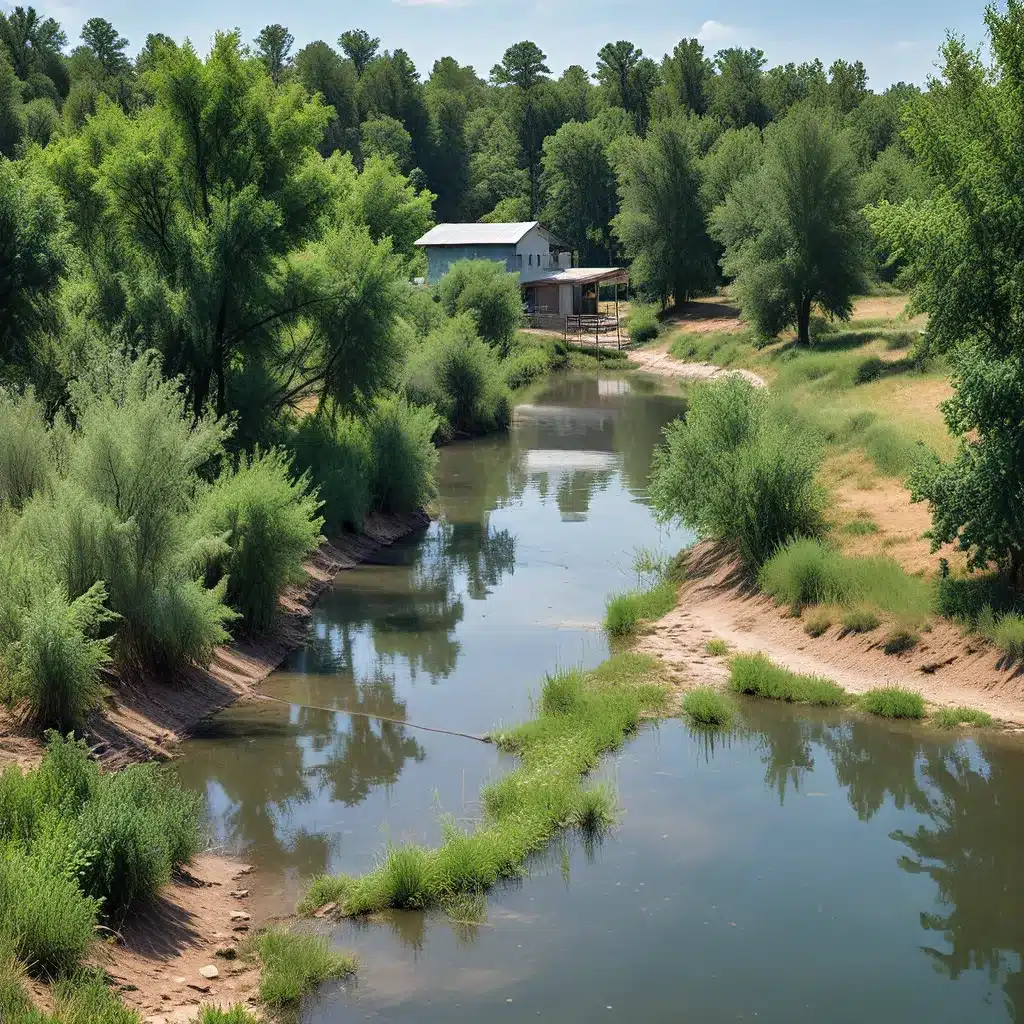
The Power of Sensor Networks in Water Conservation
Sensor networks have emerged as a transformative technology in the field of water management, enabling a new era of sustainable and efficient water usage. By leveraging the power of interconnected sensors, smart water systems can provide unprecedented insights into water consumption patterns, infrastructure performance, and environmental factors, empowering organizations and communities to make informed decisions and drive meaningful change.
In this comprehensive article, we’ll explore the pivotal role of sensor networks in optimizing water usage, enhancing conservation efforts, and addressing the pressing challenges of water scarcity and resource management.
Unlocking the Potential of Smart Water Systems
Sensor-based water management systems leverage a network of interconnected devices, each equipped with specialized sensors, to collect real-time data on various water-related parameters. These parameters can include water flow, pressure, quality, temperature, and even precipitation levels. By continuously monitoring these metrics, smart water systems can identify patterns, detect anomalies, and provide valuable insights that enable more informed decision-making.
One of the key advantages of sensor networks in water management is their ability to detect and prevent water leaks. Through the strategic placement of sensors throughout the water distribution infrastructure, these systems can quickly identify and locate leaks, enabling prompt maintenance and repair. This not only reduces water waste but also helps mitigate the environmental and financial impacts associated with undetected leaks.
Moreover, sensor networks can provide granular data on water consumption at the individual, household, or community level. This level of granularity allows for the identification of usage patterns and the optimization of water allocation, ultimately leading to more efficient and sustainable water usage.
Enhancing Water Conservation Efforts
Sensor networks play a crucial role in enhancing water conservation efforts by providing the necessary data and insights to drive informed decision-making. These smart water systems can help identify areas of high water consumption, enabling targeted conservation strategies and the implementation of water-saving technologies.
For example, sensor-based irrigation systems can monitor soil moisture levels and automatically adjust watering schedules to match the specific needs of plants, reducing unnecessary water usage in landscaping and agricultural applications. Similarly, smart metering systems can provide real-time feedback to consumers, empowering them to modify their water usage habits and adopt more water-efficient practices.
Furthermore, sensor networks can play a crucial role in monitoring and managing water quality, ensuring that the water supplied to households and businesses meets the necessary health and environmental standards. By detecting contamination, pH imbalances, or other water quality issues, these systems can trigger immediate corrective actions, protecting public health and the environment.
Overcoming Challenges in Sensor Network Deployment
While the benefits of sensor networks in water management are undeniable, the deployment and implementation of these systems can present certain challenges that must be addressed.
One of the primary concerns is network reliability and resilience. Sensor networks must be designed to withstand environmental factors, such as extreme weather conditions or physical damage, and ensure uninterrupted data transmission. Strategies like redundancy, fault tolerance, and secure communication protocols are essential to maintain the integrity and reliability of the system.
Energy efficiency is another key consideration in sensor network design. As these systems often rely on battery-powered devices, minimizing power consumption and optimizing energy management are crucial to ensure longevity and sustainability. Advancements in low-power sensor technology, energy harvesting, and efficient communication protocols are helping to address these challenges.
Data security and privacy are also critical concerns in sensor network deployments. Robust encryption, access control, and data management protocols must be implemented to protect sensitive water usage data and prevent unauthorized access or misuse. Collaboration between sensor network providers, water utilities, and regulatory authorities is essential to establish comprehensive security frameworks.
The Future of Sensor Networks in Water Management
The future of sensor networks in water management holds immense promise, as these technologies continue to evolve and provide increasingly sophisticated solutions to the challenges of water scarcity and resource conservation.
Emerging trends, such as the integration of machine learning and artificial intelligence into sensor networks, are poised to enhance the analytical capabilities of these systems. By leveraging advanced data processing algorithms, smart water systems can identify complex patterns, predict future usage trends, and optimize water distribution and allocation more effectively.
Furthermore, the integration of sensor networks with smart city infrastructure and Internet of Things (IoT) technologies will enable holistic and cross-sectoral water management. This interconnected approach will allow for coordinated decision-making across various domains, such as urban planning, agriculture, and industrial operations, ultimately leading to more sustainable and efficient water usage at the community and regional levels.
As the world grapples with the growing challenges of water scarcity, the role of sensor networks in water management becomes increasingly vital. By providing real-time data, actionable insights, and intelligent decision-support, these technologies are poised to play a transformative role in ensuring the long-term sustainability of our precious water resources.
Visit sensor-networks.org to explore more resources and stay up-to-date on the latest developments in the world of sensor networks and IoT applications.